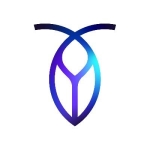We use MariaDB for any instance where we need faster retrieval and processing rates, such as establishing relationships between data entities through entity relationship mapping. MariaDB is our preference for structured data, like user details or product information. However, for handling non-structured data, such as metadata, we prefer DynamoDB or MongoDB.
MariaDB is inherently faster than MySQL database. However, given the opportunity, our team would have likely chosen Postgres for better performance in terms of concurrency, etc.
MariaDB is likely less resource-intensive than Postgres and other RDMS solutions because it offers only a subset of features.
Concurrency is a challenge in MariaDB.
I have been using MariaDB for a year.
Ten engineers are using this solution.
It's open source, but there are no dedicated technical support resources.
The deployment should be easier because we use AWS EC2 instances to run and deploy the image and the services. It took a few hours to complete.
It's an open-source solution that only charges for a server database.
I rate the solution's pricing an eight or nine out of ten, where one is expensive, and ten is cheap.
A few EC2 instances are running that solve the MySQL and the service.
Cross-functional GUIs are currently available. For example, we use DB Workbench, a solution that provides a GUI interface for MySQL, PostgreSQL, MariaDB, and several other databases.
It is seamless unless we want more advanced features, like simple database charting or event scheduling, which MariaDB doesn't support.
Our security team and platform team maintain security features. So, it depends on the type of protocols they use.
There are no particular challenges because the development kit, such as all the SD cases that are DB connectors, is well supported by Python and Java.
Our AI projects' data comes from non-relational sources like Mongo and Dynamo. Therefore, there's no direct correlation. However, MariaDB merely serves as a repository for information, such as profile data or some form of structured text (NTT), which can be displayed in tables or otherwise.
It depends on whether they prioritize performance and features. If so, they might prefer Postgres. However, MariaDB could be the better choice if they prioritize a time-tested solution and lower costs.
MariaDB offers more features than its competitors. It supports features like sharding and concurrent connections.
Overall, I rate the solution an eight out of ten.




















